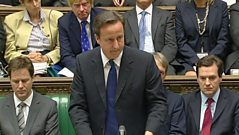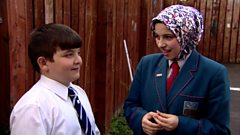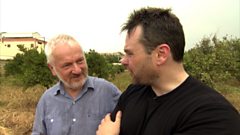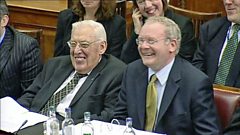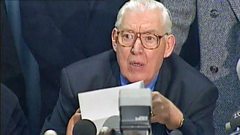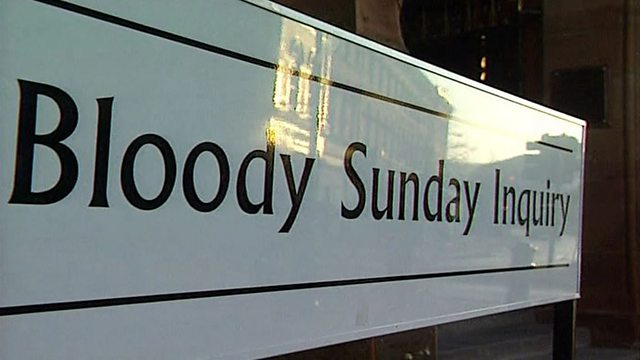
The Saville Inquiry and context of Bloody Sunday
Darragh McIntyre reports on the events of Bloody Sunday in Londonderry on 30 January 1972 and the subsequent Widgery and Saville inquiries into the event.
Darragh McIntyre reports on the events of Bloody Sunday in Londonderry on 30 January 1972 and the subsequent Widgery and Saville inquiries into the event.
The report opens with archive footage from Bloody Sunday soundtracked by British Army radio communications on the day. McIntyre explains that former army brigadier Lord Chief Justice Widgery was appointed by the Heath government to head an inquiry into Bloody Sunday on the day after the event. Less than three months after Bloody Sunday it reported its findings: the soldiers had been fired on first; although some of their shooting bordered on the reckless there was no breakdown in general discipline; there was a strong suspicion that some of those killed had been firing weapons or handling bombs.
Coroner Major Hubert O'Neill described the killings as sheer unadulterated murder and that the government paid £42,000 in compensation for all the deaths, but without admitting that the army had been in the wrong.
Prime Minister Tony Blair addresses the House of Commons in January 1998 regarding a new inquiry into Bloody Sunday, to be headed by Lord Saville. Paul McCauley, the 91�ȱ�'s Saville Inquiry Reporter states: "There really was a sense that people were seeing this as some sort of release, they had waited, in most cases over 30 years, to actually tell their story of what they saw and witnessed on Bloody Sunday".
Darragh McIntyre informs us that the forensic tests relied on by Lord Widgery were shown to be worthless. 35 former members of the Official and Provisional Irish Republican Army gave evidence – including Martin McGuinness, who denied firing a submachine gun on Bloody Sunday. The tribunal moved to London in 2002, sitting in the Methodist Central Hall. General Sir Mike Jackson, who was on duty as a captain on Bloody Sunday, gave evidence here. Extraordinary measures were put in place to protect the identity of Soldier 027 who said some colleagues had run amok; he was placed in witness protection.
Paul McCauley describes tension in the tribunal when soldiers gave evidence with victims’ relatives sitting just yards away.
Darragh McIntyre concludes by informing us that the inquiry had evidence from almost 2 and a half thousand witness statements, lasted for 12 years and cost almost £200 million. Such figures have attracted much criticism, but not from the residents of the Bogside area in Derry where Bloody Sunday occured.
Duration:
This clip is from
More clips from Bloody Sunday Report
-
![]()
Lord Saville's key conclusions on Bloody Sunday
Duration: 03:10
More clips from Spotlight
-
![]()
Hamza and Salam's escape—29/09/2015
Duration: 01:59
-
![]()
A Long Way from Clare to Here—29/09/2015
Duration: 02:25
-
![]()
Paisley and the Good Friday Agreement—Paisley and the Pretender
Duration: 02:13

